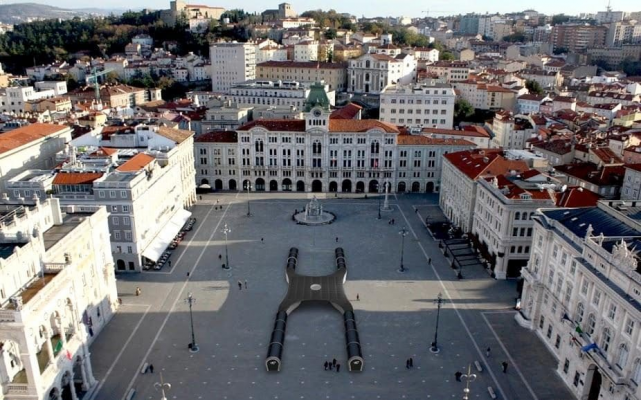By Ritika Kumbharkar & Ritu Bhargava
Every day we see greater consequences of pollution. Water is not drinkable. Neighborhoods near landfills have poor health conditions. Yet as the insurmountable problems of today increase, countless businesses are working towards sustainability. Two key organizations are fighting for a better future: Walty and Mutiara Trash Bank of Indonesia.
Water is a necessity of human survival, yet of the 2.5% of fresh water on our planet only 1% of it is accessible. Political agendas, pollution, and countless other factors further hinder accessibility to drinkable water. In the face of this grave issue, Walty has been developed as an innovative water purifier that also provides electricity and Wifi connectivity. One unit can purify 3 million liters of clean water a year and provide electricity for thousands of devices. It is a 15-ton unit covered in solar panels that can provide for a community of 3,000 people. Its technology utilizes vapor compression distillation to purify the water. It can desalinate ocean water. It can kill harmful bacteria in polluted water. It can even purify radioactive water.
Walty is not only a water purifier, it is also a communications device. It uses its own system to connect all type of data to the Internet. It can provide Wifi access over a one kilometer radius and compile environmental information through its weather monitoring system. It is solar powered to provide electricity without grid connection for powering itself and external devices, such as laptops and household appliances. Walty multitasks to clean water, generate electricity without a grid, and provide connectivity to the Internet. Its use of solar power is a self-sustaining source of energy with a low carbon footprint. In the harshest of environments it can last over 10 years and with proper maintenance, up to 20 years.

Countries can utilize Walty to increase access to water and electricity in rural areas, spread education, and foster economic growth. NGOs can use Walty in natural disaster situations, develop long-term sustainability, and upgrade medical care. Corporations, military forces, and even private individuals can buy this water purifier. It is not only a tool for rural areas or those living in poverty. If scaled large enough Walty can provide a meaningful difference in the critical challenge of access to drinkable water, sustainable electricity, and access to Wifi.
***
In just the town Makassar, Indonesia, 800 tons of waste are produced each day and end up in landfills. 70% of Indonesia’s waste ends up in landfills. Landfills not only pollute the environment, but also negatively affects the health of those living around them. These people are usually caught in poverty and spend their time searching through this waste for valuables to trade in slum markets. They cannot afford the health care they need and barely make enough money.
Mutiara Trash Bank of Indonesia is a Makassar-based organization. It is a “trash banking” system in which residents can borrow cash from this bank and pay it back in trash. Through the cash borrowed, individuals can pay for rice, phone cards, or electricity and then collect and deposit trash in return. The bank targets women and those working part-time usually earn 2000-3000 rupiah (15 – 23 cents). Mutiara also provides a savings account for people to dip into when they need.
This bank is not the first of its kind, with others in Asia, South America, and Africa. Indonesia alone has 2,800 trash banks in 129 cities, which work with 175,000 people in poverty. This system empowers individuals with access to credit and savings accounts while protecting the environment. It opens doors that were previously closed due to rigid and inflexible traditional systems that discriminate against the poor.
Waste is no longer just waste; it is an income-generating tool. Worldwide efficiency is improved as items like glass Coke bottles are reused. Plastics and other materials are broken down to reduce our carbon footprint or are recycled to make items like recycled lunchboxes. Trash banking is a scalable and replicable model for reducing poverty while improving the environment.
Walty and Mutiara Trash Bank of Indonesia have set the stage for a brighter future. The impossible problem of finding more drinkable water is now made possible with Walty’s technology. The garbage that was once thought useless is now crucial for lifting families out of poverty. These two organizations prove that technology, social entrepreneurship, and dedication can improve lives around the world for us living today and our children living tomorrow.


